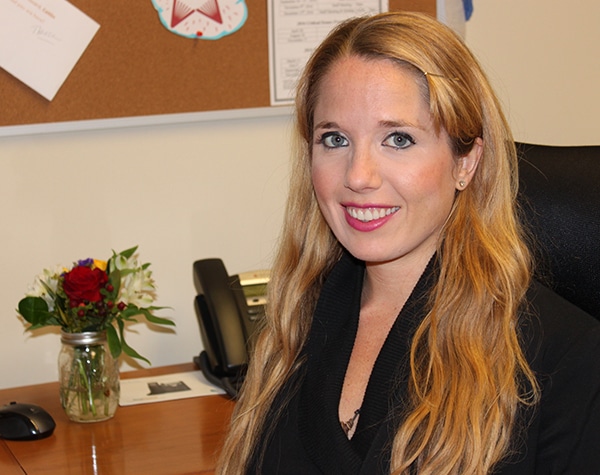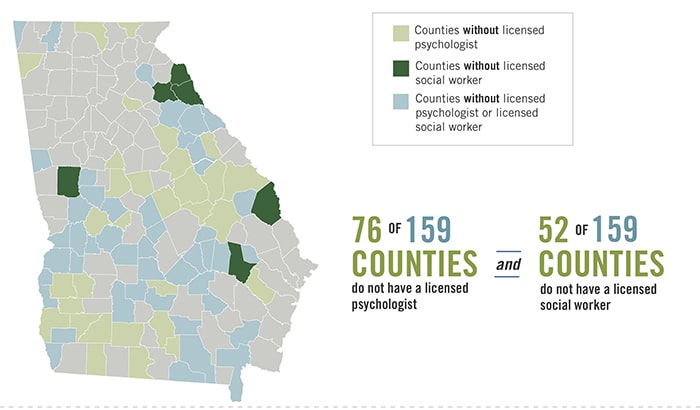Education’s Top Issues: Student Mental Health—Time for Action
Print This Post
by Caitlin Daugherty Kokenes
This week we are continuing to highlight issues from the Georgia Partnership for Excellence in Education’s Top Ten Issues to Watch in 2017. Last week, we examined what Georgia is doing to turnaround struggling schools. This week, we highlight Issue 8: Student Mental Health—Time to Take Center Stage.
Georgia students’ mental health is vital to their ability to succeed in school and in life. Mental health is comprised of a person’s emotional, psychological, and social well-being. Increasingly, public health professionals are emphasizing the importance of mental health and how it affects how a person thinks and feels, handles stress, relates to others, and makes decisions. Untreated mental health issues can lead to detrimental outcomes for students throughout their everyday lives.
The link between student health and student performance is clear. While it is easy to see that connection when it comes to a student’s physical health which may cause one to be absent from school, a student’s mental health issues can have just as great of an impact—affecting both a student’s attendance and ability to concentrate.
Moreover:
- Half of students age 14 and older with a mental illness drop out of school
- Suicide is the third leading cause of death in youth ages 10–24
- 90 percent of those who die by suicide had an underlying mental illness
- 85,000 children in Georgia have a mental health need for which they are receiving no support or treatment
Given the seriousness and extent of these issues for children, there are multiple areas of need that Georgia must address. First, there is a workforce shortage in Georgia in the areas of child psychiatry and psychology. Second, there is a vast fragmentation of state services that do exist in these areas. There are not enough providers in schools and across the state to deal with the need for their services. Across Georgia, 76 of 159 counties do not have a licensed psychologist, and 52 of 159 counties do not have a licensed social worker.

Source: Voices for Georgia’s Children, Georgia’s Crisis in Child and Adolescent Behavioral Health
Related to this shortage, approximately 80 percent of students who do receive mental health services receive them in school; this shows that the public education system carries an outsized burden for identifying and treating students’ mental health issues.
To respond to this need, schools and the Georgia Department of Education (GaDOE) are implementing two innovative programs across the state that are showing positive results.: the Positive Behavioral Interventions and Supports program (PBIS) and the related initiative, Project Aware. PBIS is an evidence-based, data-driven framework currently used in 50 counties, that focuses on a school-wide approach to reduce discipline issues and advance a climate of increased productivity, safety and learning. Project Aware is a partnership between the GaDOE and local school districts that provides training in Youth Mental Health First Aid and establishes methods for connecting families and affected students to mental health services that are based in their own communities.
Through programs like PBIS and Project AWARE, Georgia is making positive strides to address student mental health issues. However, more work needs to be done. In 2015, the Georgia House of Representatives initiated a Study Committee on children’s mental health. Their most recent recommendations, published in December 2016, call for the governor to convene a coalition of advocates, legislators, educators, and other key stakeholders to create a statewide strategic plan to address the many issues surrounding children’s mental health and the current lack of adequate services to support our students.
To give Georgia students their best chance for success, Georgia must address all aspects of student learning, including mental health. When they can thrive in school, students have a far greater chance of becoming strong, independent adults and members of the workforce. The benefits of caring for student mental health are shared throughout our communities as are the consequences of neglecting this care, for those reasons schools cannot and should not be asked to address this need alone. To solve this problem, systems must come together and do what is best for the future of Georgia by advocating for greater supports for the mental health of our students.
Caitlin Daugherty Kokenes is the Project Associate at the Georgia Partnership for Excellence in Education.
Check out part two of this three-part series, “Current Issue to Watch—No Opportunity School District—What Now?” by Dana Rickman, policy and research director at GPEE.
